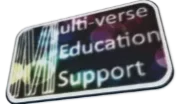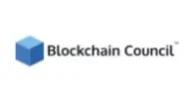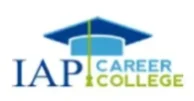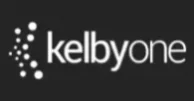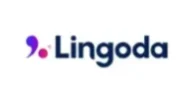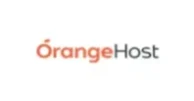FAQ
The concept developed from an interest to efficiently conduct web-conference sessions and E-Learning modalities that enabled busy professionals to coordinate among businesses and clients within a coherent portfolio. There were reports of companies being misrepresented, so a specific identity for remote sessions was required. Currently, Multiedsupport has become a multi-modal or modular E-Learning and Talent Management platform with various blog boards to enhance the services.
Services are constantly being added and reevaluated. The emphasis is on offering E-Learning lesson concepts that fill a niche within the mainstream of subject topics. As a result, contractors are both teachers, innovators, and multimedia journalists who can be featured across social media channels. Additionally, the priority exists to redeem pedagogic strategies for digital content creation and to enhance the potential of educators.
The process is straightforward and predictable. Upon submitting the registration form, contractors will be issued a username to set up independent courses on Moodle LMS, which is then linked to the main site. Contractors can then also customize their profiles to be featured on the site under current professionals.
All that is required is a genuine interest in a subject topic and some form of payment to initially reimburse. There are coupon discounts available and contact forms to address the admin staff prior to any purchase and for any necessary negotiation.
The board/platform does not issue degrees and certificates as an articulated outcome. Any legitimate outcome instruments would need to be accredited and evaluated by the government and then reflect those specific standards. However, Multiedsupport is there to provide enhancements to any existing educational venture, regardless of accreditation. The option certainly exists to receive recommendations, reviews, and course completion certificates.
Online learning is a type of education that takes place via the internet. Students are able to access lectures, assignments, and other course materials through a virtual classroom platform. Interaction between students and instructors may take place through online discussions, video conferencing, and email exchanges. The flexibility of online learning allows students to complete coursework at their own pace and on their own schedule, but it also requires students to be self-motivated and manage their time effectively. Online learning can be a convenient and affordable option for individuals who may not be able to attend traditional classroom-based courses, but it may not be suitable for everyone as it requires strong computer skills and a reliable internet connection.


Yes, you can learn at your own pace. One of the benefits of modern education is the variety of options available to learners in terms of pace, access, and content. Online courses, self-paced learning materials, and distance education programs all allow learners to progress through the material at their own speed and on their own schedule. This is especially helpful for people with busy work schedules or other commitments that make it difficult to attend traditional classroom sessions.
However, self-paced learning requires self-discipline and motivation. You will need to set goals for yourself, track your progress, and stay focused to successfully complete the course or program. Additionally, some courses may have time limits or deadlines for assignments, so it is important to plan your time accordingly. Overall, self-paced learning can be a beneficial way to achieve your goals while accommodating your individual needs and learning style.
Yes, online learning can be effective if it is designed and delivered properly. Numerous studies have shown that online learning can have the same or even better outcomes than traditional in-person learning. Online learning offers several advantages such as flexibility, accessibility, and affordability. Learners can engage with course materials at their own pace and schedule, which is particularly beneficial for those with busy schedules or other commitments. Additionally, online learning allows learners from different locations to connect and collaborate with each other, enabling them to share their knowledge and gain diverse perspectives. However, it is important to note that the success of online learning depends on several factors such as the quality of course materials, the level of engagement and support provided by instructors, and the technical infrastructure used. Therefore, online learning must be well-designed and executed to realize its full potential.
The requirements to take online courses vary by platform and course provider, but typically include a reliable internet connection, access to a computer or mobile device, and an email address for registration. Some courses may require specific software or tools, such as a word processor or video editing program. Depending on the course, students may need to have prerequisite knowledge or experience in a particular subject area. In addition to meeting technical requirements, students may need to pay a fee to enroll in some courses. It’s important to carefully review course information and requirements before signing up to ensure a positive learning experience.
For a modern organization, technology requirements may include the hardware requirements needed for computers, servers, smartphones, printers, and other devices, along with the necessary software and licensing agreements. Network infrastructure requirements may include internet services, network switches, routers, firewalls, and other network security tools.
In addition to these core technology resources, organizations may have other specific requirements, such as specialized software applications, cloud-based storage and services, big data analytics, and artificial intelligence or machine learning solutions. The technology requirements for an organization will depend on its industry, size, operations, and goals, as well as its digital transformation strategy.
Online learning provides numerous benefits that traditional classroom learning does not offer. Firstly, online learning allows for flexibility in terms of schedule and location. Students can study at their own pace and from wherever they are located, making it ideal for those who may have work or family commitments. Additionally, online courses often provide a wide range of resources such as videos, interactive activities, and discussion boards, which can cater to different learning styles. Moreover, online learning can be much more cost-effective compared to traditional classroom learning, as it eliminates the need for physical classroom space, printed materials, and transportation costs. Lastly, online courses enable students to develop technical and digital skills, which are increasingly essential in today’s global digital economy. Overall, online learning can be a convenient and cost-effective way to learn and acquire new skills.
Yes, of course! E-learning courses can be made available in various languages such as French, Spanish, Dutch and many more. You can easily translate your eLearning course into multiple languages, if you need cross culture training in your organization.
Yes, eLearning courses can be customized according to your specific needs. You can tailor the course content to address your organization’s unique goals and challenges, integrate your branding, and create personalized learning paths for your employees or students. You can also adjust the course pacing, format, and assessments to suit your learners’ preferences and learning styles. Customization helps to engage learners and improve their learning outcomes by creating a more relevant, inclusive experience. There are several eLearning authoring tools available, such as Articulate Storyline, Adobe Captivate, and Lectora Inspire, that enable even non-technical users to create and customize eLearning courses and modules that meet the unique needs of their audience.
Click Below to Visit Our Acclaimed Affiliates!
Previous
Next
